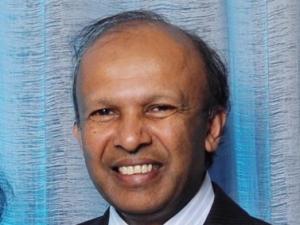Event Actions
Abstract: Robot navigation in unknown environments, particularly when an external location reference such as a global positioning system (GPS) is not available, requires a robot to be able to build a map of the environment in real-time and simultaneously estimate its own location within the map. Robust solutions to the “Simultaneous Localization and Mapping (SLAM)” problem, therefore, underpin successful robot deployment in many application domains such as urban search and rescue, underground mining, underwater surveillance, autonomous driving and planetary exploration. The SLAM problem has revealed many surprises since the first “solutions” emerged in the late 90’s. This talk will chronicle the author’s journey in looking for solutions to SLAM through extended Kalman filters, information filters, non-linear optimisers, graph theory and most recently linear least-squares.
Bio: Gamini Dissanayake is an emeritus professor at The University of Technology, Sydney (UTS). He was the James N Kirby Distinguished Professor of Mechanical and Mechatronic Engineering at University of Technology, Sydney (UTS) until his retirement in 2020. He graduated in Mechanical/Production Engineering from the University of Peradeniya, Sri Lanka. He received his M.Sc. in Machine Tool Technology and Ph.D. in Mechanical Engineering (Robotics) from the University of Birmingham, England. He taught at University of Peradeniya, National University of Singapore and University of Sydney before joining UTS in 2002. At UTS, he founded the UTS Centre for Autonomous Systems that grew to a team of seventy five staff and students working in Robotics by 2020. His main contribution to robotics has been in Simultaneous Localisation and Mapping (SLAM), which resulted in one of the most cited journal publication in robotics in the past twenty years. SLAM is the robotic equivalent of a human finding their way around in a city without GPS and maps, thus underpins many robot applications ranging from household vacuum-cleaning robots to self-driving cars. He has also been involved in developing robots for a range of industry applications including cargo handling, disaster response, mining, infrastructure maintenance and aged care.
Host: Tomonari Furukawa
